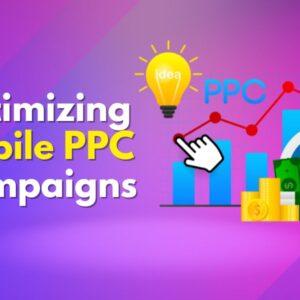Social media has grown to be an essential marketing tool for restaurants in the digital age for reaching customers and promoting their brands. However, successful restaurant social media management involves more than just showcasing visually appealing food photos. It requires restaurants to take a strategic, consistent approach tailored to truly connect with their target audience. This article explores how restaurants can utilize social media to engage meaningfully with diners, build lasting relationships, and ultimately drive business growth through effective digital marketing.
Understanding Social Media’s Power for Restaurant Social Media Management
With over 4 billion active users, platforms like Facebook, Instagram, Twitter, and LinkedIn provide restaurants with unprecedented opportunities to interact directly with customers. Visually focused platforms like Instagram and Pinterest are especially valuable, allowing restaurants to showcase tempting images of menu items in an aesthetically pleasing style. Furthermore, social media enables targeted advertising based on demographics, interests, behaviors, and location. This facilitates reaching potential patrons in a more personalized manner. Ultimately, it provides a direct line of communication, allowing restaurants to engage in meaningful two-way conversations, gather feedback, and foster a sense of community with customers.
Developing a Strategic Approach
Effective 𝐬𝐨𝐜𝐢𝐚𝐥 𝐦𝐞𝐝𝐢𝐚 𝐦𝐚𝐧𝐚𝐠𝐞𝐦𝐞𝐧𝐭 𝐟𝐨𝐫 𝐫𝐞𝐬𝐭𝐚𝐮𝐫𝐚𝐧𝐭𝐬 starts with identifying target audiences so content can be tailored accordingly. For an upscale dining venue, this means adopting sophisticated aesthetics and language catering to affluent patrons. For a hip café, it requires a casual, vibrant tone that resonates with young crowds. Defining audience personas is crucial.
Consistent posting is also key for engagement – too much or too little activity can disengage followers. The right cadence keeps audiences engaged without overwhelming them. Scheduling tools can assist in planning effective timelines.
Visually appealing, on-brand creative content is essential in restaurant internet marketing. High-quality photos and videos showcasing dishes, kitchens, and customer reviews make for compelling posts. Conveying the restaurant’s unique story and identity is important.
Engaging Your Audience with Social Listening
Online community platforms is a two-way dialogue. Respond to comments, messages, and mentions in a timely manner to show customers their feedback is valued. Social listening helps identify customer pain points, trends, and emerging issues to address.
User-generated content (UGC) is hugely impactful. Run contests and giveaways to encourage diners to share their positive restaurant experiences, food photos, and reviews and tag your business. This boosts visibility and social proof.
Leveraging Paid Social Advertising
While organic reach is important, paid advertising on platforms like Facebook and Instagram can greatly expand your reach. Their detailed targeting capabilities based on demographics, interests, behaviors, and more allow you to ensure messaging resonates with those most likely to visit your restaurant. Retargeting ads keep your brand top-of-mind. Using compelling creative and clear calls-to-action is key to ad success.
Monitoring and Measuring Performance
Consistently track and analyze key performance indicators – such as engagement, reach, website traffic, and conversions – to gain insights into what content resonates best, optimal posting times, demographic data, and overall growth. Social media analytics and listening provide valuable data to refine strategy. For instance, increased engagement around dessert posts could signal to create more mouthwatering dessert content.
Managing Negative Feedback
It’s inevitable that some interactions on networking platforms will be negative. Address complaints publicly with empathy, and follow up privately to resolve issues, to demonstrate your commitment to customer satisfaction. This helps turn detractors into brand advocates.
In summary, effective management is essential for restaurant marketing in our digital world. By understanding its power, implementing a strategic approach, creating engaging content, listening to your audience, leveraging paid advertising, and closely monitoring performance, restaurants can fully harness these platforms to connect with customers, boost visibility, and drive growth. For restaurants willing to embrace digital marketing creatively, the opportunities to stand out from the competition and thrive are unlimited.










